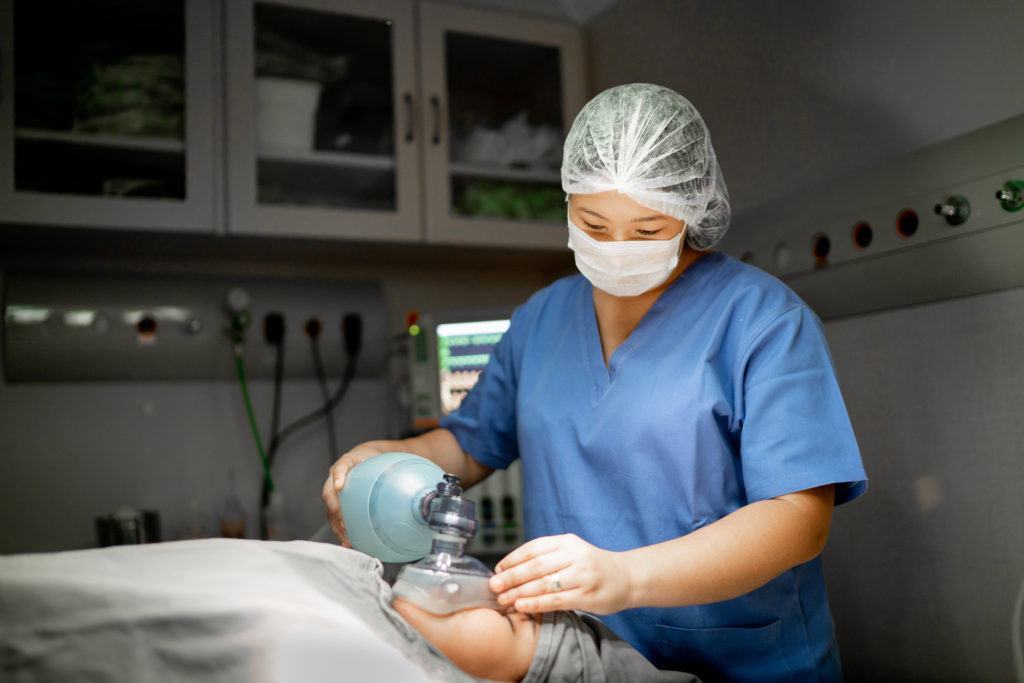
If you are scheduled for surgery at our Troy, Michigan ambulatory surgery center, rest assured that you will be in good hands.
You will be cared for during your surgery by a Certified Registered Nurse Anesthetist (CRNA). CRNAs have been providing anesthesia care since the 1800s when they provided care to wounded soldiers during the Civil War. Currently, CRNAs provide over 49 million anesthetics a year in the United States. This was also the first nursing specialty.
CRNA Education
The education of a CRNA begins with a four-year nursing degree from an accredited school of nursing.
Nurses interested in becoming CRNAs are then required to spend at least two years in the critical care/intensive care unit of a hospital. This includes experience with surgical, medical, cardiac, or emergency patients. The goal is for them to gain experience with very sick patients, where they learn to make critical, independent decisions.
Once they have gained sufficient critical care and professional leadership experience, they are then able to apply to an accredited nurse anesthesia program. Admission into a program of nurse anesthesia is competitive. Nationally, only about 10% of applicants are accepted. The three-year curriculum includes courses in the following:
- Advanced physiology
- Pharmacology
- Principles of anesthesia practice
- Evidence-based practice and research
All nurse anesthesia graduates are required to have administered a minimum of 650 anesthetics by the time of graduation. The terminal degree for nurse anesthetists is a Doctor of Nursing Practice, or DNP.
In addition to being a select group of advanced practice nurses, CRNAs are also lifelong learners. They must complete 40 hours of continuing medical education credits every two years to maintain their certification.
What a Nurse Anesthetist Does During Surgeries
In collaboration with an anesthesiologist or the surgeon, CRNAs who work in an ambulatory surgery center administer anesthesia to patients prior to surgery. They also may assist in pain management before and after the procedure.
CRNAs meet with patients prior to the surgery to determine which anesthesia options would be most suitable, as well as to answer any questions the patients may have. The nurse anesthetists would also monitor the patients closely while they are under anesthesia during the procedure, wake the patients up after their surgeries, and assist them in moving around after the procedures.
Specifically, CRNAs’ responsibilities may include the following:
- Preparing an anesthesia plan in collaboration with the anesthesiologist or surgeon
- Managing the patient’s airways, such as by providing intubation
- Monitoring patients throughout the procedures
- Assisting in addressing emergency complications as well as emergency wake-up of a patient
- Applying regional anesthesia if needed
Explore CRNA careers through our anesthesia group, Long Lake Anesthesiology Consultants. Find other job openings at UnaSource Surgery Center through our website.
— Petra Hurt
Certified Registered Nurse Anesthetist (CRNA)
UnaSource Surgery Center, Troy, Michigan
